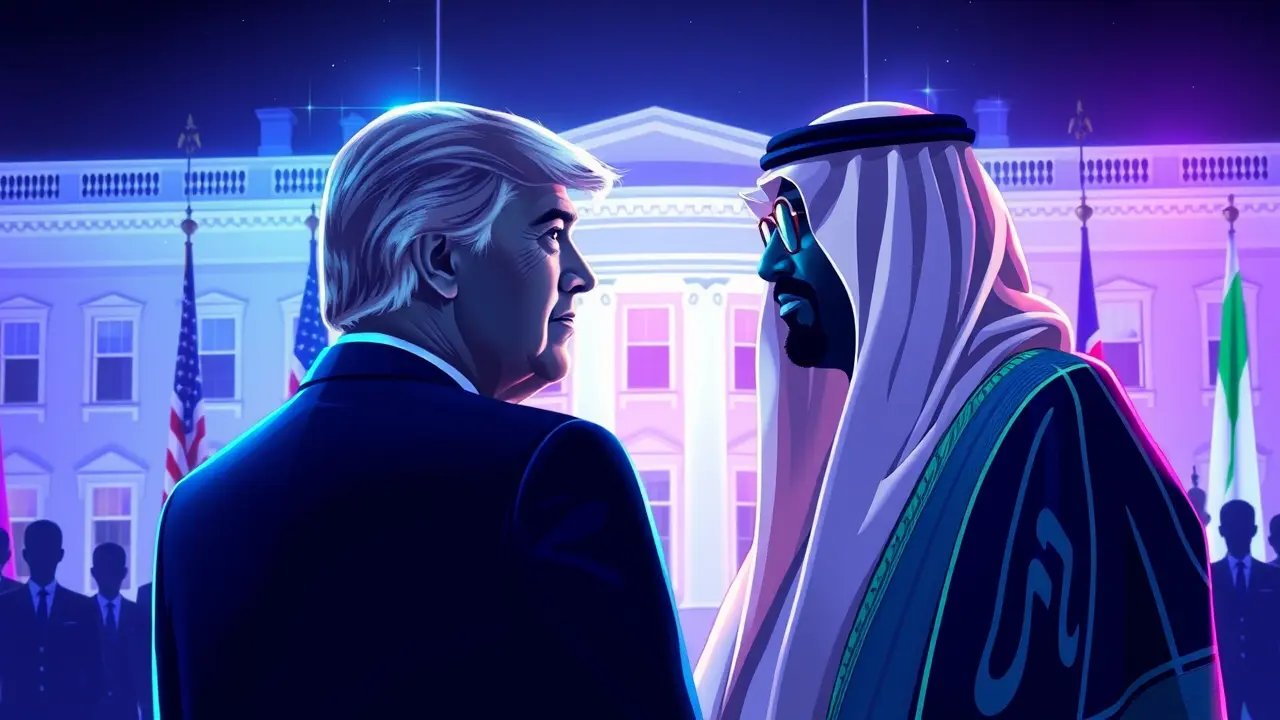Trump to Host Saudi Crown Prince for AI and Nuclear Talks
In a diplomatic engagement that reads like a chapter from an Asimov novel, President Donald Trump is poised to host Saudi Arabia’s Crown Prince Mohammed bin Salman at the White House on November 18, with an agenda that places artificial intelligence and nuclear cooperation at the forefront of a new strategic partnership. This meeting, the first stateside visit by the 40-year-old de facto leader since 2018, represents more than a routine diplomatic exchange; it is a pivotal moment where the foundational principles of AI ethics and the precarious balance of nuclear non-proliferation are being negotiated not in academic symposia, but in the high-stakes theater of international realpolitik.The anticipated agreements on defense and trade, while significant, are almost ancillary to the core discussion, which seeks to forge a technological alliance that could irrevocably alter the geopolitical landscape of the Middle East and the world. The shadow of potential normalization with Israel looms large over the talks, a complex diplomatic puzzle where AI and energy are being leveraged as powerful incentives.From an analytical perspective, this convergence of AI and nuclear technology with a nation whose human rights record remains a subject of intense global scrutiny forces a difficult reckoning with the classic risk-versus-opportunity paradigm. The opportunity is clear: a U.S. -Saudi AI corridor could accelerate innovation, create a counterweight to Chinese technological dominance, and fund ambitious research into everything from predictive analytics for oil extraction to personalized medicine.Yet, the risks are profound, echoing the very dilemmas science fiction has long warned us about. We must ask: what are the ethical guardrails for developing autonomous systems in a monarchy with an absolute power structure? How do we ensure that nuclear cooperation, even if ostensibly for civilian energy, does not inadvertently lower the threshold for a regional arms race, particularly with a rival like Iran? The discussions are a live-fire exercise in applied policy, where abstract debates about algorithmic bias and the control problem of AGI meet the hard reality of multi-billion-dollar contracts and geopolitical maneuvering.The Crown Prince’s Vision 2030, a blueprint for reducing Saudi Arabia's economic dependence on oil, is fundamentally a bet on technological supremacy, and this meeting is a critical step in securing the American partnership required to make that bet pay off. For the Trump administration, it represents a continuation of a foreign policy doctrine that prioritizes tangible strategic and economic gains, often sidelining traditional diplomatic and human rights concerns.The broader context here is a global scramble for AI dominance, where nations are jockeying to set the standards and control the infrastructure of the next industrial revolution. By bringing Saudi Arabia into its orbit, the U.S. is not just selling chips and software; it is attempting to export a technological paradigm, hoping to shape the rules of the digital future in a crucial region.However, this path is fraught with long-term consequences. Empowering a strategic partner with advanced AI capabilities could create a formidable ally, but it could also create a future competitor whose values may not align with democratic ideals.The nuclear component adds another layer of existential risk, demanding rigorous oversight mechanisms that must be robust enough to survive political shifts and potential conflicts. As these two leaders sit down to talk, they are not merely negotiating a series of deals; they are, in a very real sense, architecting a piece of the future, making decisions today whose repercussions will be studied by policy analysts and ethicists for decades to come, a stark reminder that the most consequential stories of our time are increasingly being written at the intersection of technology, power, and diplomacy.
CO
CodeSlinger996 hours ago
whoa this is like a sci-fi plot playing out in real time 🤖 the idea of an AI corridor is wild but the ethics here are... complicated to say the least
0
QU
QuietObserver9 hours ago
idk this feels like we're just building the future on some shaky ground tbh
0
© 2025 Outpoll Service LTD. All rights reserved.
